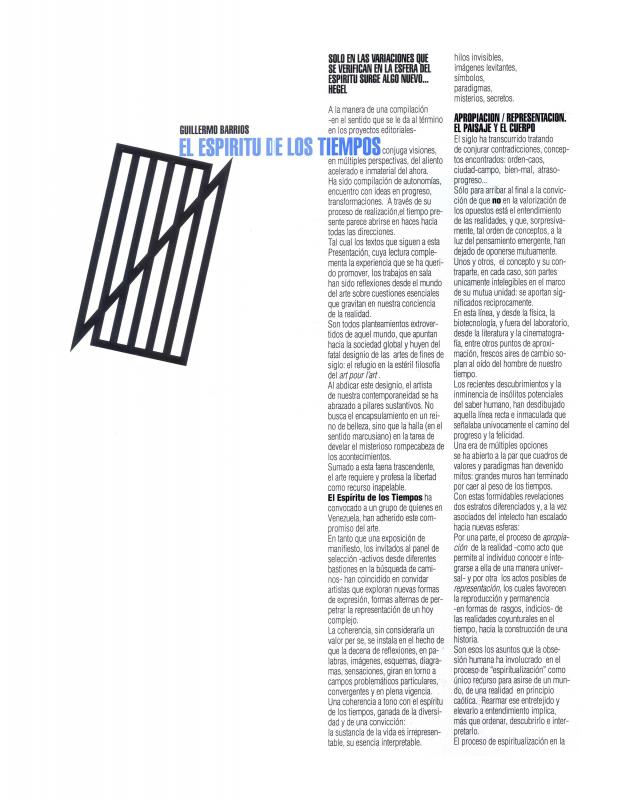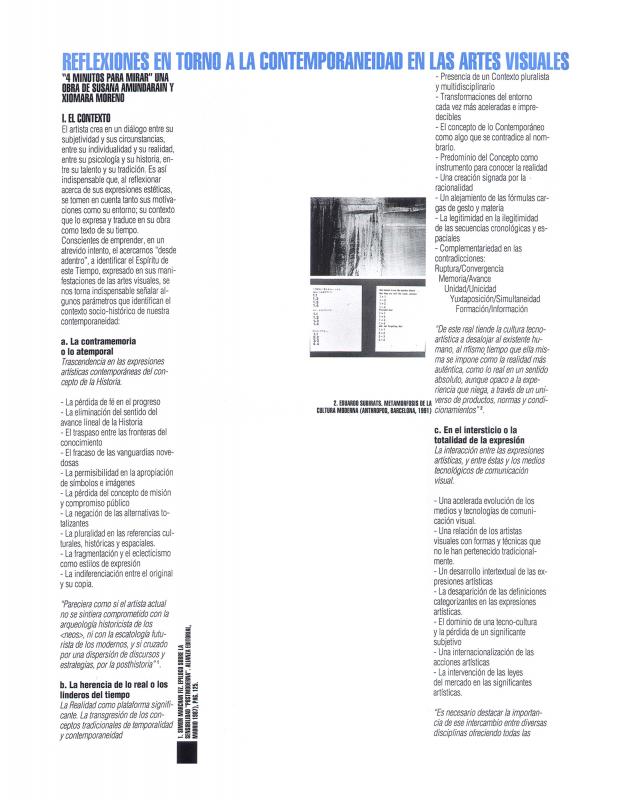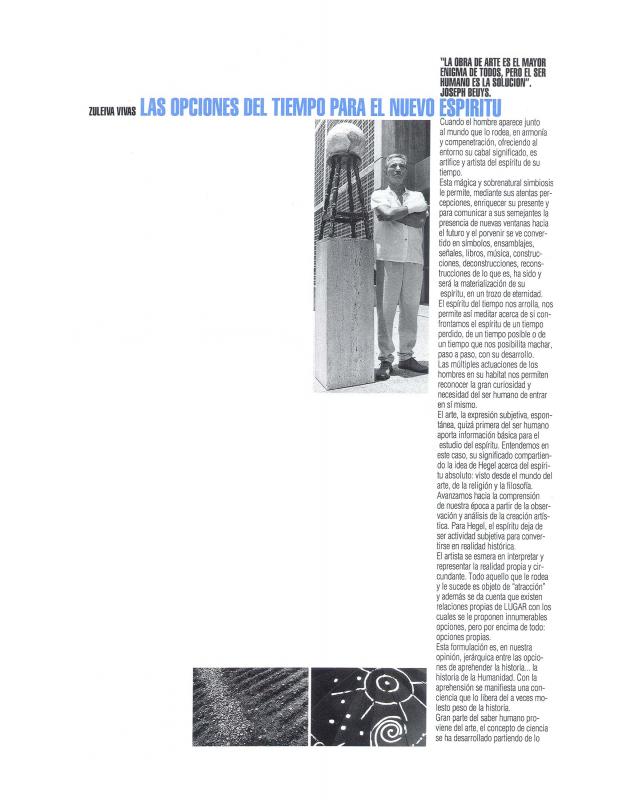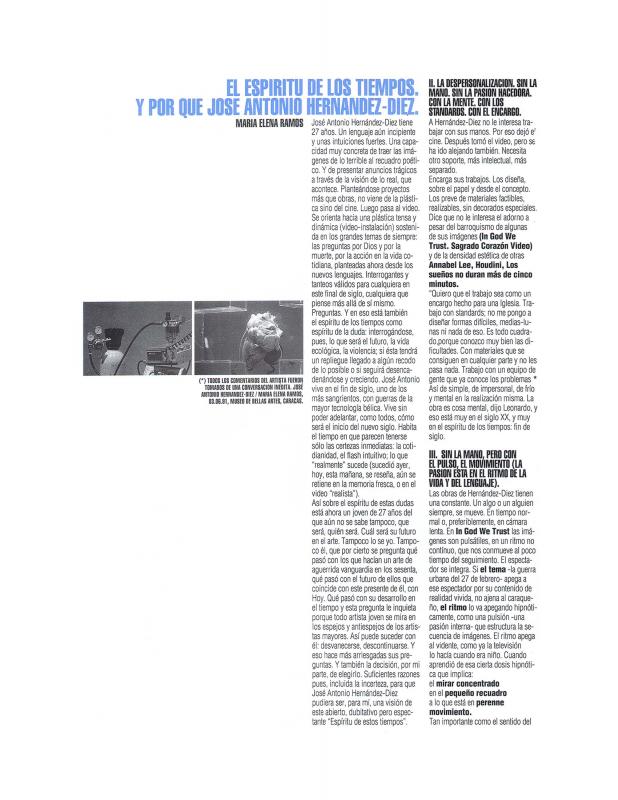The exhibition El espíritu de los tiempos, organized by the Ateneo de Caracas to celebrate its sixtieth anniversary [in 1991], is representative of the Conceptual and Neo-Conceptual designs developed in Venezuela during the 1990s. Organized by the curator Guillermo Barrios, this exhibition invited each of five well-known Venezuelan curators and critics to make a selection of one or two artists and to write an essay about their chosen artist(s). Starting with an introduction by Barrios [see ICAA digital archive, “El espíritu de los tiempos” (doc. No. 1160984)] and an essay by Graciela Pantin, “Reflexiones en torno a la contemporaneidad en las artes visuales venezolanas: 4 minutos para mirar, una obra de Susana Amundaraín y Xiomara Moreno” [(doc. no. 1222405)], the catalogue also includes several other texts: one by Zuleiva Vivas (on Claudio Perna) (doc. No. 1065674); [this essay] by Ariel Jiménez (on José Gabriel Fernández); and finally, one by María Elena Ramos (on José Antonio Hernández Diez) (doc. No. 1065692)]. The curator Miguel Miguel selected the artist Alfred Wenemoser but declined to write an essay.
This essay by the curator and critic Ariel Jiménez (b. 1958) makes a strong contribution to the critical thinking about contemporary art. Moreover, it provides a profound, humanistic perspective (based on philosophy and sociology) about the fundamental problems of modern man, with a special focus on Latin America. It is an approach—at times severely realistic—to the following themes: our concepts of time and history; the ambiguous border between reality and unreality; fragility; history lived under the cloud of “a here and a there” that always sets us apart from the rest of the Western world; and the aimlessness and uprootedness “that seem to be our social destiny, now and forever.”
While this essay is based on the writer’s own experience and the affinities he finds in Fernandez’s work (his Latin Americanist ideas and feelings), it actually addresses themes that affect all humankind. These include survival of the species; our threatened planet; history as the only transcendence possible for the human race—in which “originality” is the only value; and the disenchantment of the revolutionary utopia. Jiménez’s essay conveys pessimism and pain; since his concluding statement is: “For now, we are all left exposed to the elements, though in other nations, they are not as harsh and cruel as they are in our countries. We cannot even claim any measure of urbanity, any order capable of suitably administering the heritage we were given.”




